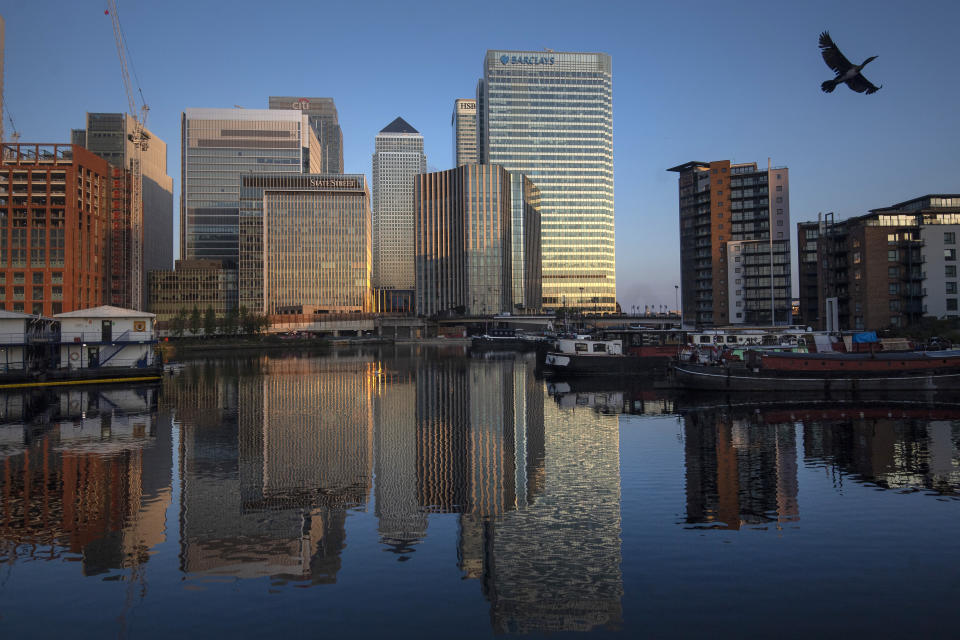Coronavirus: UK services sector grows at fastest pace since 2015

The UK’s services sector emerged from the doldrums of the coronavirus crisis and returned to growth in July, with activity expanding at its fastest pace since 2015.
A closely watched survey by IHS Markit found that the sector’s purchasing managers’ index (PMI) reading came in at 56.5 in July, up from 47.1 in June and sharply higher than the all-time record low of 13.4 in April.
The services sector is hugely important to the UK economy — it includes finance, law, retail, engineering, and consulting — and accounts for around 80% of the country’s economic output.
PMIs are an indicator of private sector activity and are given on a scale of 1 to 100. Anything above 50 signals growth, and anything below means contraction.
While the index has climbed each month since April, the latest reading — the highest since July 2015 — is the first to signal a return to growth for the sector.
Some 38% of respondents to the survey said they had seen an increase in business activity in July, while around 24% signalled a decline.
READ MORE: European stocks rise as investors digest positive earnings reports
IHS Markit said that the higher levels of activity were “overwhelmingly linked” to the easing of the UK’s coronavirus restrictions and a subsequent increase in demand from customers.
Because PMIs measure rate of change, even this rapid expansion of activity does not mean that the sector has recovered from the impact of the crisis, and respondents noted that output had simply risen from an “extremely low base” and would take a long time to reach its pre-pandemic levels.
“UK service providers are starting to see light at the end of the tunnel after a record slump in business activity during the second quarter of 2020,” said Tim Moore, the economics director at IHS Markit.
“July data revealed the fastest increase in business activity for five years, which adds to signs of recovery across the manufacturing sector this summer,” he said.
While new business volumes in the sector increased for the first time in five months, respondents also pointed to cancellations and “subdued” underlying demand, with businesses and households choosing to rein in non-essential spending.
READ MORE: Coronavirus sales slump drives BMW to a second quarter loss
IHS Markit said that employment continued to be a “weak point” in July. Staffing numbers in the services sector fell at a “steep and accelerated pace,” raising concerns about only a “partial” recovery in longer-term demand.
Around one-third of firms said they had seen a drop in staffing levels, while only 11% said there had been an increase.
“Employment fell even more quickly in July as some firms made redundancies in response to worries about the length of the recovery,” said Duncan Brock, the group director of the Chartered Institute of Procurement and Supply.
Hopes that the easing of lockdown measures would result in a “sustained boost” to activity were nevertheless partly responsible for a further boost to business optimism, which reached a five-month high in July.
Listen to the latest podcast from Yahoo Finance UK

 Yahoo Finance
Yahoo Finance 
